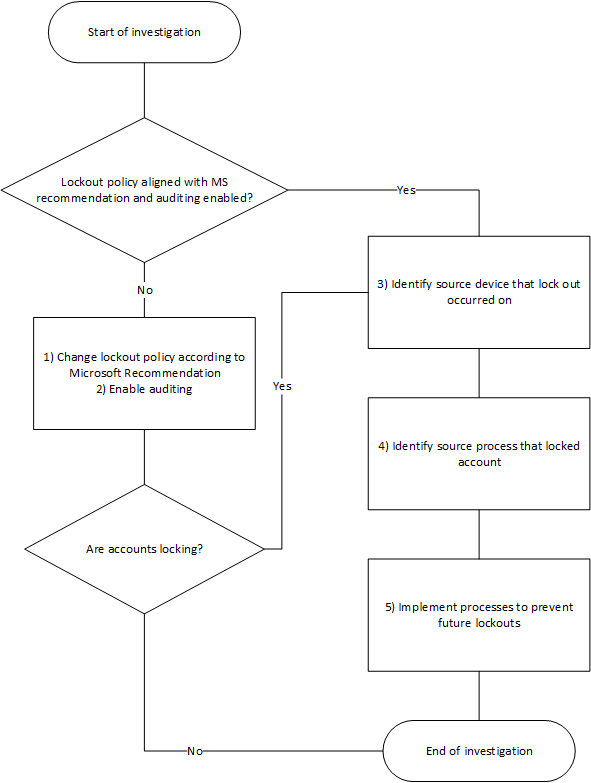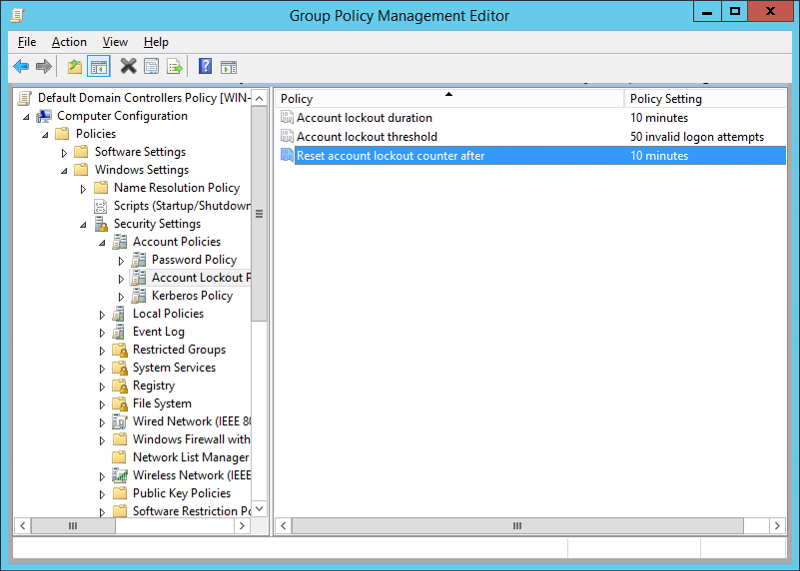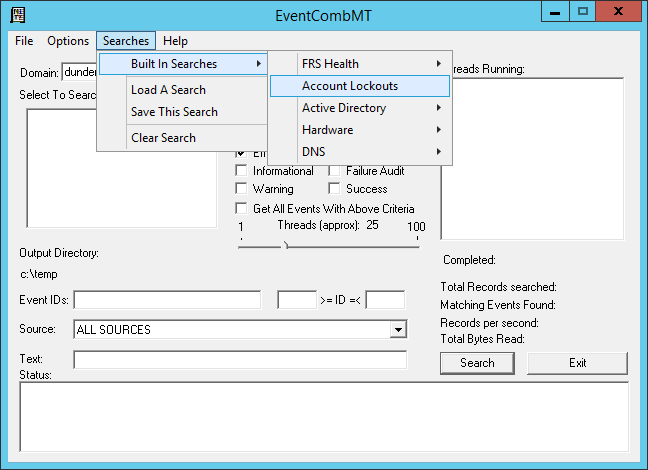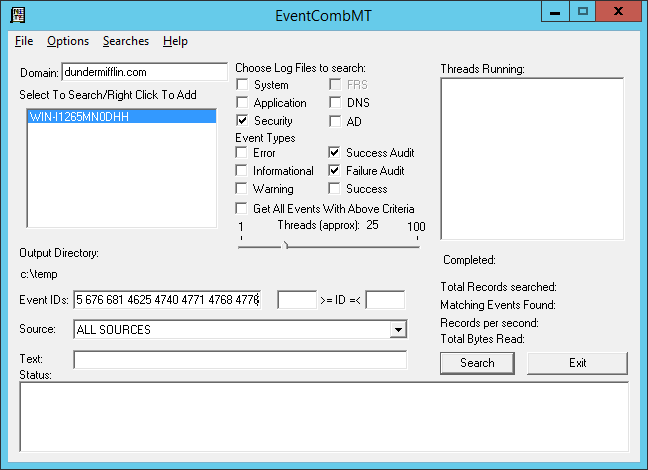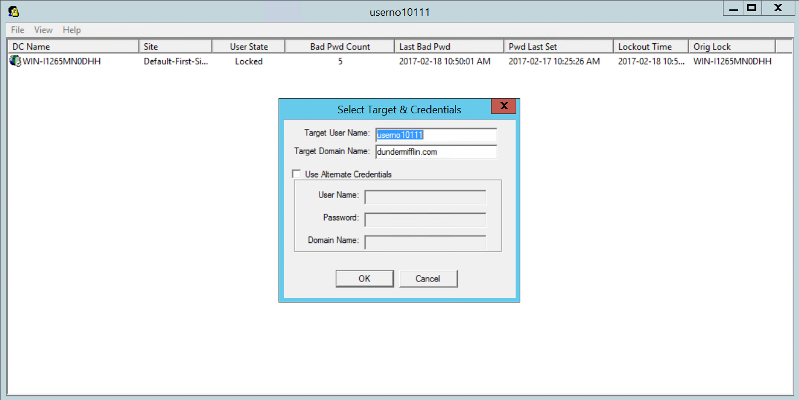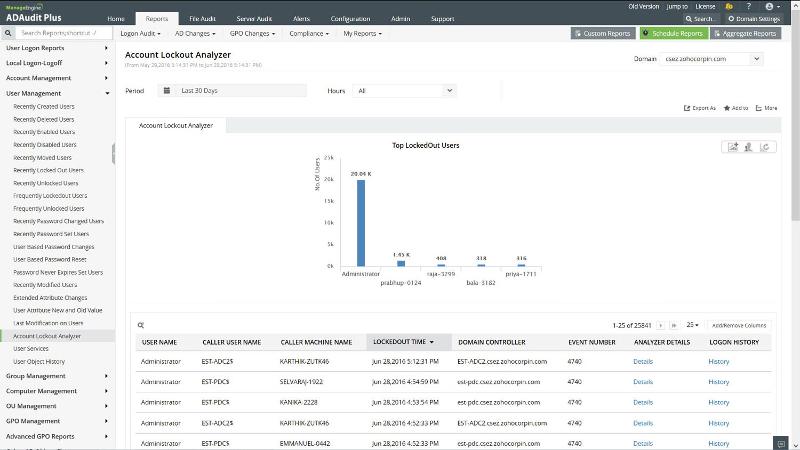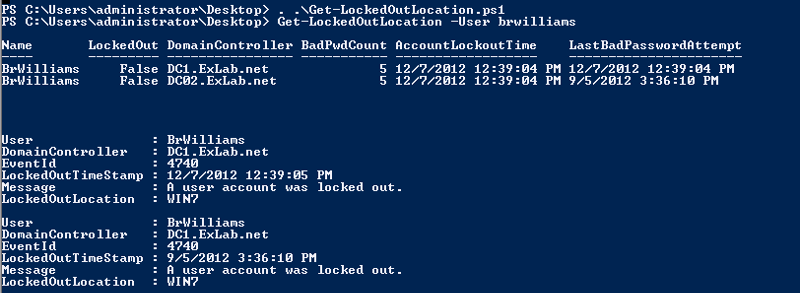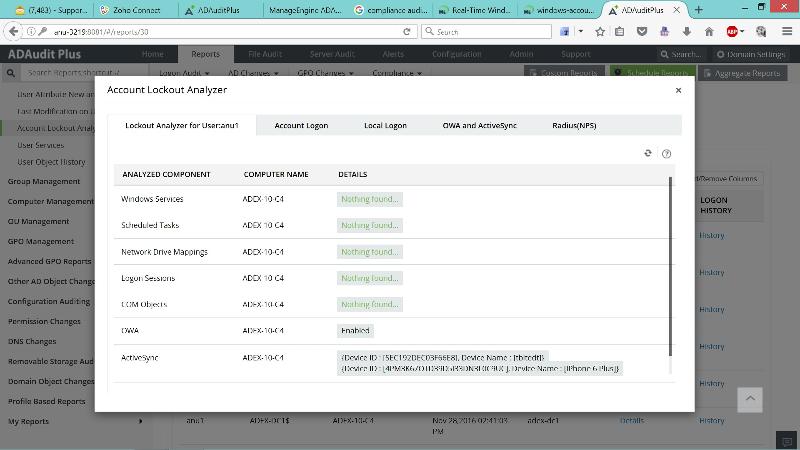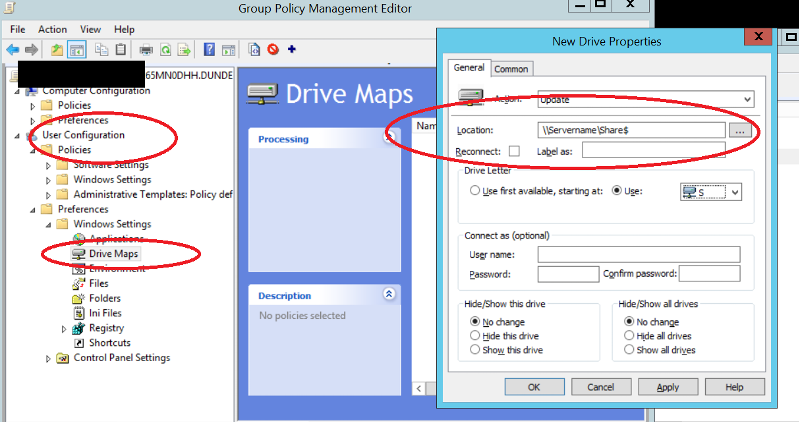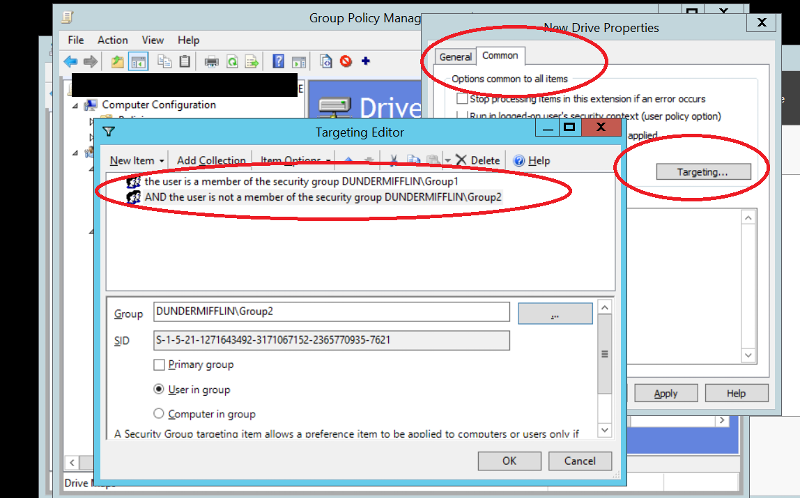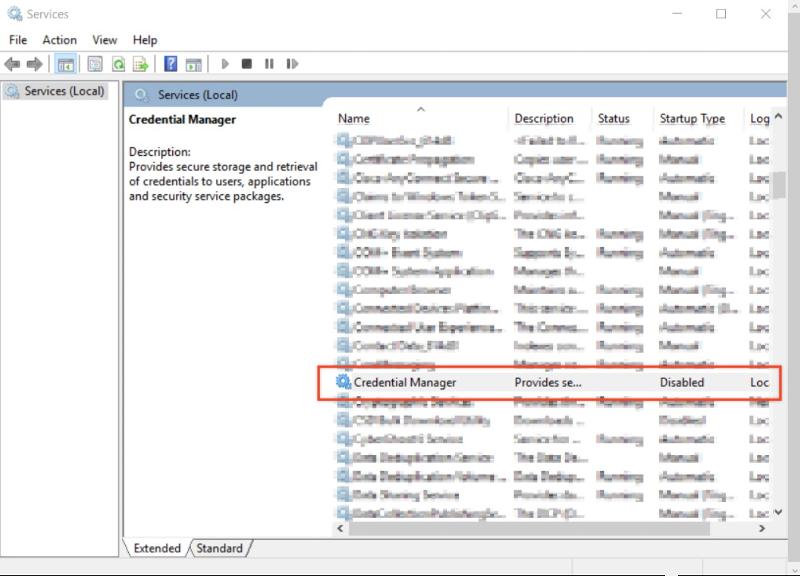This article outlines the process to identify and resolve account lockout in an Active Directory environment.
Process
1) Change lockout policy according to Microsoft Recommendation
The lockout policy’s ultimate goal is to protect against automated password guessing (brute-force attack) and as such, the value should be high enough so that accounts are not accidentally locked out by an end user or incorrect saved password.
As per the following articles, I would recommend the following lockout settings
- Account lockout threshold 50
- Reset account lockout counter after 10 minutes
https://technet.microsoft.com/en-us/library/cc671957(v=ws.10).aspx
https://technet.microsoft.com/en-us/library/hh994574(v=ws.11).aspx
2) Enabling Auditing
Identifying the source of the account lockouts in a complex environment will be virtually impossible without auditing enabled.
Please note: Only events that occurred after enabling auditing will be logged. It also might be necessary to increase Security log file size
3) Identify source device that lockout occurred on
3.1) Event Comb
Part of Account Lockout and Management Tools https://www.microsoft.com/en-us/download/details.aspx?id=18465
Still a useful tool in a pinch.
Please note: Built-in search for account lockout is not using the newer event IDs. To search newer IDs, add 4625 4740 4771 4768 4776 to the list
For details on these events, see
https://www.ultimatewindowssecurity.com/securitylog/encyclopedia/event.aspx?eventid=529
https://www.ultimatewindowssecurity.com/securitylog/encyclopedia/event.aspx?eventid=4625
https://www.ultimatewindowssecurity.com/securitylog/encyclopedia/event.aspx?eventid=644
https://www.ultimatewindowssecurity.com/securitylog/encyclopedia/event.aspx?eventid=4740
https://www.ultimatewindowssecurity.com/securitylog/encyclopedia/event.aspx?eventid=675
https://www.ultimatewindowssecurity.com/securitylog/encyclopedia/event.aspx?eventid=4771
https://www.ultimatewindowssecurity.com/securitylog/encyclopedia/event.aspx?eventid=676
https://www.ultimatewindowssecurity.com/securitylog/encyclopedia/event.aspx?eventid=4768
https://www.ultimatewindowssecurity.com/securitylog/encyclopedia/event.aspx?eventid=681
https://www.ultimatewindowssecurity.com/securitylog/encyclopedia/event.aspx?eventid=4776
All gathered events from selected domain controllers will be saved into text files in the temp folder

3.2) Lockout Status
Part of Account Lockout and Management Tools https://www.microsoft.com/en-us/download/details.aspx?id=18465
When you start tool you specify the user account to inspect.
Please note: If the lock device is a Domain Controller, you have to follow the trail until you get to the actual source device name
3.3) AD Audit
See https://www.manageengine.com/products/active-directory-audit
My personal favorite, AD Audit makes finding the source account that locks device super easy, just use built-in reports
4.1) Powershell
Get-LockedOutLocation
https://gallery.technet.microsoft.com/scriptcenter/Get-LockedOutLocation-b2fd0cab
4) Identify source process that locked account
4.1) NetWrix Account Lockout Examiner
See https://www.netwrix.com/account_lockout_examiner.html
Install NetWrix Account Lockout Examiner on another computer. After that run it and point to the device that generates lockouts.
4.2) ADAudit
See https://www.manageengine.com/products/active-directory-audit
As I said before, my personal favorite. After finding source account that locks device using built-in reports, the Account Lockout Analyzer can show the source process that locks accounts
5) Implement processes to prevent future lockouts
5.1 Windows Services, Scheduled Tasks and COM Objects
Utilize service accounts with strong non-expiring passwords or managed service accounts.
5.2 Drive Mappings
Do not map drives with explicit username and password. Utilize Group Policy User Drive Map Preference to map the drive mappings.
Implement RDP inactive/idling session logoff.
5.4 Credential Manager
Disable Credential Manager service. This will prevent users from saving/using stored passwords
If your account that you are using for the investigation is locking, rename your username for the duration of the investigation
